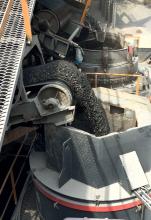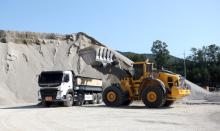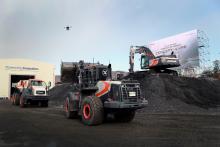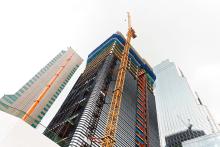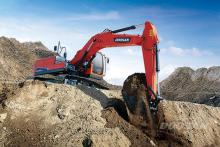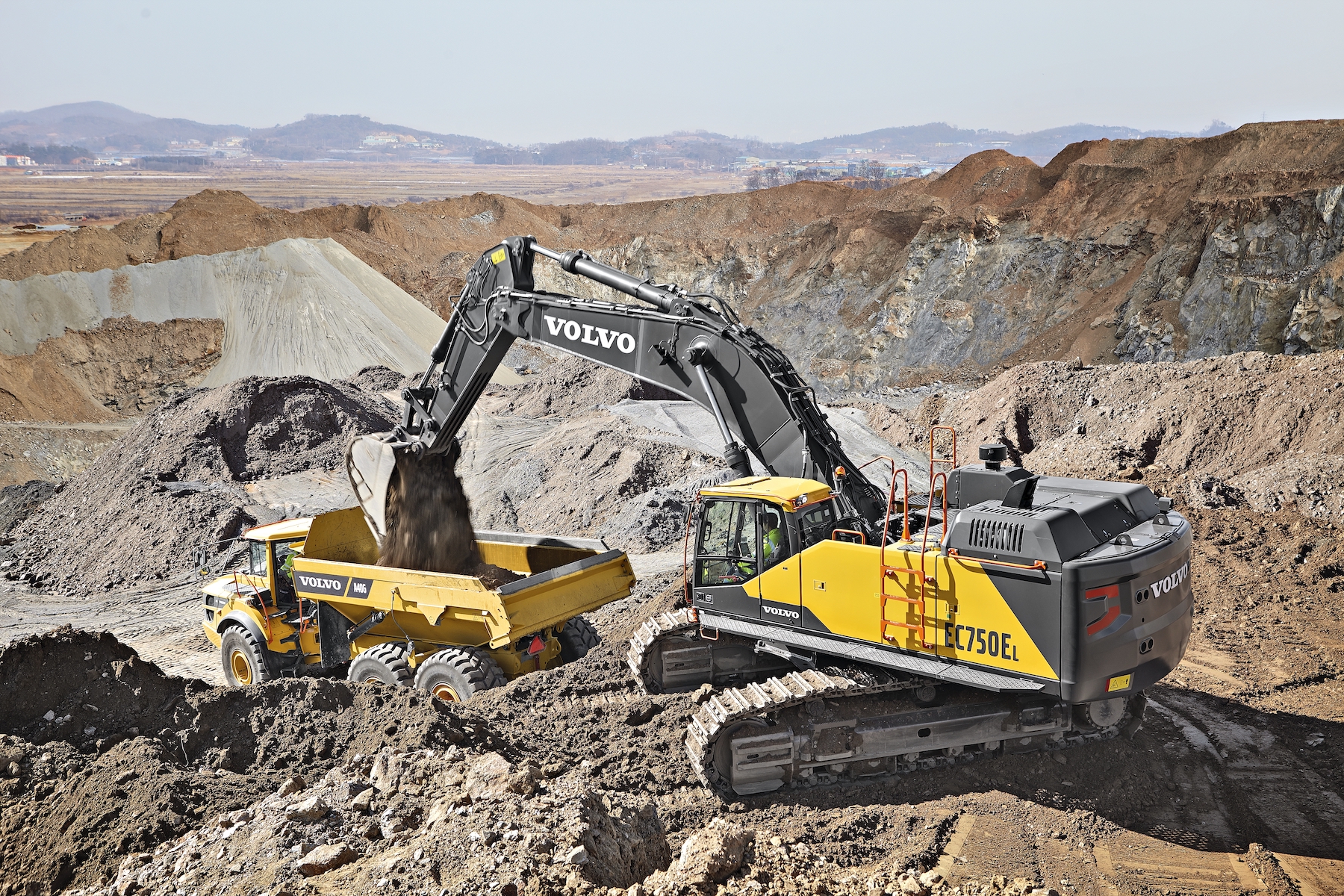
Korea’s strong aggregates need is creating exciting business opportunities for construction materials suppliers and quarrying and construction equipment manufacturers. Guy Woodford reports.
The global media’s geopolitical commentators are increasingly writing about Korea. The country is a rich topic for them given ongoing high tension between its north and south, the increasing interest of new U.S. president Donald Trump in the East Asia region, and the recent swearing in of South Korea’s new president, Moon Jae-in, the successor to Park Geun-hye, who is awaiting trial on corruption and other charges after being impeached late last year.
It is surprising that it’s taken so long for so much attention to be paid to South Korea, Asia’s fourth largest economy. As the UK national broadsheet newspaper The Guardian, reported earlier this year, when Korea was divided in 1953, the south’s prospects looked grim. Life expectancy stood at around 50 years. Now, as one of the many benefits of its transformation into a major global economic player, South Korean women are by 2030 expected to live past 90.
Another upside of South Korea’s economic development miracle has been the huge development of its commercial, residential and transport infrastructure. This has created significant demand for raw construction materials and construction and quarrying equipment.
Encouragingly, there still remains strong demand, as Suhen Agarwal,
“Moreover, it creates a good opportunity for operators to upgrade the existing crushing plants and machineries with better, efficient and more productive new generation machines.”
Due to the plethora of earmarked government and private company-controlled projects, South Korea’s construction GDP is forecast to grow to US$86 billion in 2018, compared to $70 billion in 2017; with construction GDP forecast to hit $91 billion in 2019.
Agarwal says that South Korea’s “very competitive” construction materials market is dominated by local players. Due to a shortage of natural sand, Agarwal says suppliers are increasingly focused on producing quality manufactured sand.
He continues: “In the heavy civil construction market segment, customers are looking for more sturdy and reliable equipment that can give consistent performance till the end of the project. Korean quarry owners are becoming more aware and interested in better technology for increasing capacity and efficiency of their plants. Downtime and cost per tonne are very critical for them and as such they are now more open to adapt and invest in the superior technology from Europe. Metso has a good opportunity to introduce its products and high-class technology and increase its market share.”
Agarwal says that South Korean customers are mainly using stationary crushing plant, but the introduction a couple of years ago of mobile plant, particularly Metso Lokotrack models, had been met with a “very positive response” from end users, and they are becoming more and more popular. “Our HP Cones particularly are extremely popular in Korea and have made a niche positioning over competition,” he adds.
Agarwal says that a few years ago, small-to-medium capacity plant was more popular among South Korean customers. However, due to quarry licence issues, more and more larger plant with higher capacities are being demanded by customers.
He adds: “South Korea has stringent quality regulations. There is a very strict regulation to check the quality of aggregates both for asphalt and concrete. Hence, most of the quarry owner’s/aggregates producers are concerned about the shape of the aggregates and the gradation. This increases the demand for better latest generation technology and equipment.
“Businesses are also being passed over to the next younger generation who are amenable to invest in better technology and are not sensitive in initial investment, but particular on higher return on their investment. This will help premium solution companies like Metso to introduce state-of-the-art products and demonstrate better performance and get repeat business.”
Agarwal says he’s also noticed many quarry operators and contractors are making efforts to reduce dust and noise pollution during work hours, while also saving water and power, wherever possible.
Byun ChunSub, is CEO of Keun Woo, a 1.5 million tonnes/year aggregate processing company that uses a large fleet of Volvo construction equipment, including EC480E excavators. Commenting on the South Korean building materials market, he says: “We expect demand to be flat this year as the construction of apartment blocks from last year carries over this year. Overall the market depends heavily on housebuilding and the construction of smaller apartment blocks. But there is a good range of other projects that also contribute to demand. Most of the larger infrastructure and construction projects in the country were on hold until the presidential election on May 9th.”
The Construction Association of Korea (CAK) expects construction investment in South Korea to grow by 3% this year, compared to 2016.
“We expect activity levels in the aggregates industry to broadly align with that and post an increase this year,” says Frederic Ruesche,
Like all construction and quarrying equipment manufacturers doing business in South Korea, Ruesche and Volvo Construction Equipment (Volvo CE) are keen to see the level of SOC (Social Overhead Capital) set by the country’s new president, Moon Jae-in; it will determine when work on a number of South Korea’s many new major infrastructure projects can start.
Like Metso’s Suhan Agarwal, Ruesche notes a shift in legislation and regulation covering South Korea’s aggregates sector. “They are increasing in regard to the development of new aggregates sites. This is a reflection of growing environmental awareness in the country. A knock-on effect of this is that existing aggregates and recycling sites are expanding to meet growing demand.”
Ruesche says South Korean demand for quarrying and heavy construction equipment is divided into two camps: high-end premium products, such as those manufactured by Volvo CE; and lower cost, or value, machines, many of which are built by smaller-sized domestic manufacturers.
From a solely Volvo CE perspective, Ruesche says the brand’s most popular products are its 38tonne and higher excavators. “In particular our EC380E and EC480E are popular, but we’re also seeing a spike in interest for our 75-tonne rated EC750E excavator. Customers especially like how well-matched this machine is to our A45G articulated hauler, a combination that delivers optimum productivity in quarry applications. From our wheel loader line, machines from our 4.8 m³ bucket capacity L180H and bigger are popular.
“At Volvo CE we are developing technologies connected to electromobility, intelligent machines and total site solutions and there is increasing interest in this technology among our customers in South Korea. In fact, many were present at our Xploration Forum in Sweden, which we staged at the end of 2015.”

